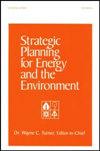A Study on the System Design of Eco-Friendly Smart Farm Using the Internet of Things and Renewable Energy
Q3 Environmental Science
Strategic Planning for Energy and the Environment
Pub Date : 2023-07-11
DOI:10.13052/spee1048-5236.4242
引用次数: 0
Abstract
The environment changes rapidly due to climate change. This situation has a great influence on the agricultural sector. In particular, prices of agricultural products rise as space for producing agricultural products around the world decreases. To solve this problem, smart farm is recognized as major technologies in the future society. In particular, in the era of the 4th Industrial Revolution, new technologies such as the Internet of Things (IOT) and artificial intelligence will be installed in smart farm. In addition, with the development of the Internet of Things (IOT) technology, temperature, humidity, and concentration of fluids in plant factories can be monitored and controlled with smart-phone through various sensors. This IoT technology is recognized as a very important technology for smart farm. In addition, a sustainable smart farm model by converging with eco-friendly IT technology is also important. Therefore, in this paper, a study was conducted on the system design of eco-friendly smart farm using the Internet of Thing. Such smart farm technology can remotely manage plants through the Internet of Things. The research methods of this study are as follows. First, a literature study was conducted in this paper. Based on this literature study, the researcher conducted a field survey on smart farm. The researcher visited this space in person and conducted in-depth interviews with operators and researchers. The researcher analyzed the results derived through this survey and suggested the design principle for the eco-friendly smart farm system. In addition, this study proposes a method for using the Internet of Things and renewable energy for smart farms in preparation for the era of climate change. The results of this study can be theoretical basic data for changes in the agricultural field in the era of the Fourth Industrial Revolution.基于物联网和可再生能源的生态友好型智能农场系统设计研究
由于气候变化,环境变化迅速。这种情况对农业部门有很大影响。特别是,随着世界各地农产品生产空间的缩小,农产品价格也在上涨。为了解决这个问题,智能农场被认为是未来社会的主要技术。特别是在第四次工业革命时代,物联网和人工智能等新技术将安装在智能农场中。此外,随着物联网技术的发展,工厂内的温度、湿度和液体浓度可以通过各种传感器用智能手机进行监测和控制。这种物联网技术被认为是智能农场的一项非常重要的技术。此外,通过与环保IT技术融合,建立可持续的智能农场模式也很重要。因此,本文利用物联网技术对生态友好型智能农场的系统设计进行了研究。这种智能农场技术可以通过物联网远程管理植物。本研究的研究方法如下。本文首先进行了文献研究。基于这一文献研究,研究人员对智能农场进行了实地调查。研究人员亲自访问了这个空间,并对运营商和研究人员进行了深入采访。研究人员分析了此次调查的结果,并提出了生态友好型智能农场系统的设计原则。此外,本研究提出了一种将物联网和可再生能源用于智能农场的方法,为气候变化时代做准备。研究结果可作为第四次工业革命时期农业领域变革的理论基础数据。
本文章由计算机程序翻译,如有差异,请以英文原文为准。
求助全文
约1分钟内获得全文
求助全文
来源期刊

Strategic Planning for Energy and the Environment
Environmental Science-Environmental Science (all)
CiteScore
1.50
自引率
0.00%
发文量
25
 求助内容:
求助内容: 应助结果提醒方式:
应助结果提醒方式:


